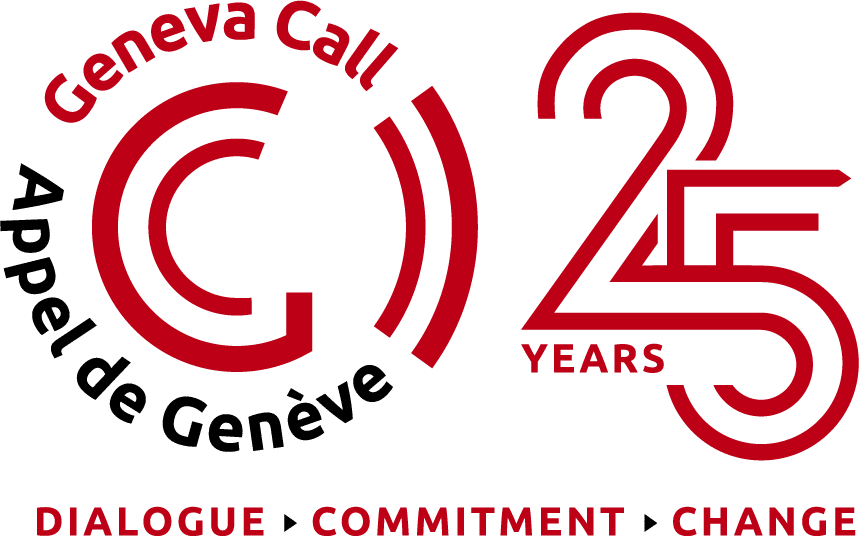Myanmar
Thematic areas: IHL, Child Protection, Gender
In 2022, Myanmar faced an alarming humanitarian crisis. The 2021 military coup marked a critical turning point, terminating a decade of peace processes and ceasefire agreements, ushering in a new era of violence and breaches of international laws. The country witnessed a notable surge in violations of International Humanitarian Law (IHL) and International Human Rights Law (IHRL), significantly impacting civilians who bore the brunt of these transgressions. Originally confined to rural areas, the conflict swiftly extended into urban centers. The country saw a surge in armed group activities, including the emergence of new armed groups, alongside existing ethnic armed groups. This escalation not only increased protection risks but also posed impediments to humanitarian access, exacerbating the already dire situation in Myanmar.
Geneva Call’s activities in the country
Capacity Building for Civilian Stakeholders: Geneva Call has successfully enhanced the capabilities of civilian stakeholders, empowering them to effectively communicate their protection concerns with armed actors. This training includes critical aspects of child protection, emphasizing the prohibition of recruitment, forced association of children with armed groups, and using children in hostilities.
Dissemination of Knowledge: A key impact involves the dissemination of knowledge acquired through training sessions. Participants, equipped with insights from the child protection training, have actively shared this information within their communities. For instance, one individual reported sharing knowledge about the protection of children with both fellow villagers and soldiers, contributing to a broader awareness of humanitarian norms.
Review of AGDA Policies: Geneva Call’s influence extends to policy reviews within armed groups, particularly. The policies of these armed entities have been assessed and updated to incorporate provisions specifically addressing the protection of women and children. This proactive approach demonstrates the organization’s commitment to fostering a protective environment.
Monitoring Permissions: Geneva Call has secured permissions to conduct monitoring visits within AGDA facilities. These visits serve the dual purpose of assessing compliance with Deeds of Commitment (DoC) and identifying areas where additional support is required. This hands-on engagement reinforces the commitment to upholding humanitarian norms within armed groups, contributing to a safer environment for vulnerable populations.
KEY DATA
After signing the Deed of Commitment banning AP mines, the Chin National Front reported that it had CLEARED AND DESTROYED AROUND 3,000 AP MINES taken from four different locations along the border with India, together with stockpiled improvised explosive device components.
SIX ARMED GROUPS have signed one or more Deeds of Commitment and have taken steps to implement them.
Humanitarian engagement with over 60 AGDAs.
Legal support to review 6 AGDA’s Codes of Conduct.
Out of the trained civilian stakeholders, 53% had conducted advocacy for the increased protection of women and children with AGDAs and 60% of trained civilians stated that there was a significant improvement in their organization’s technical capacity to advocate for humanitarian norms.
Read our Annual Report to learn more about our work in Myanmar in 2024.
Contact information:
info@genevacall.org

